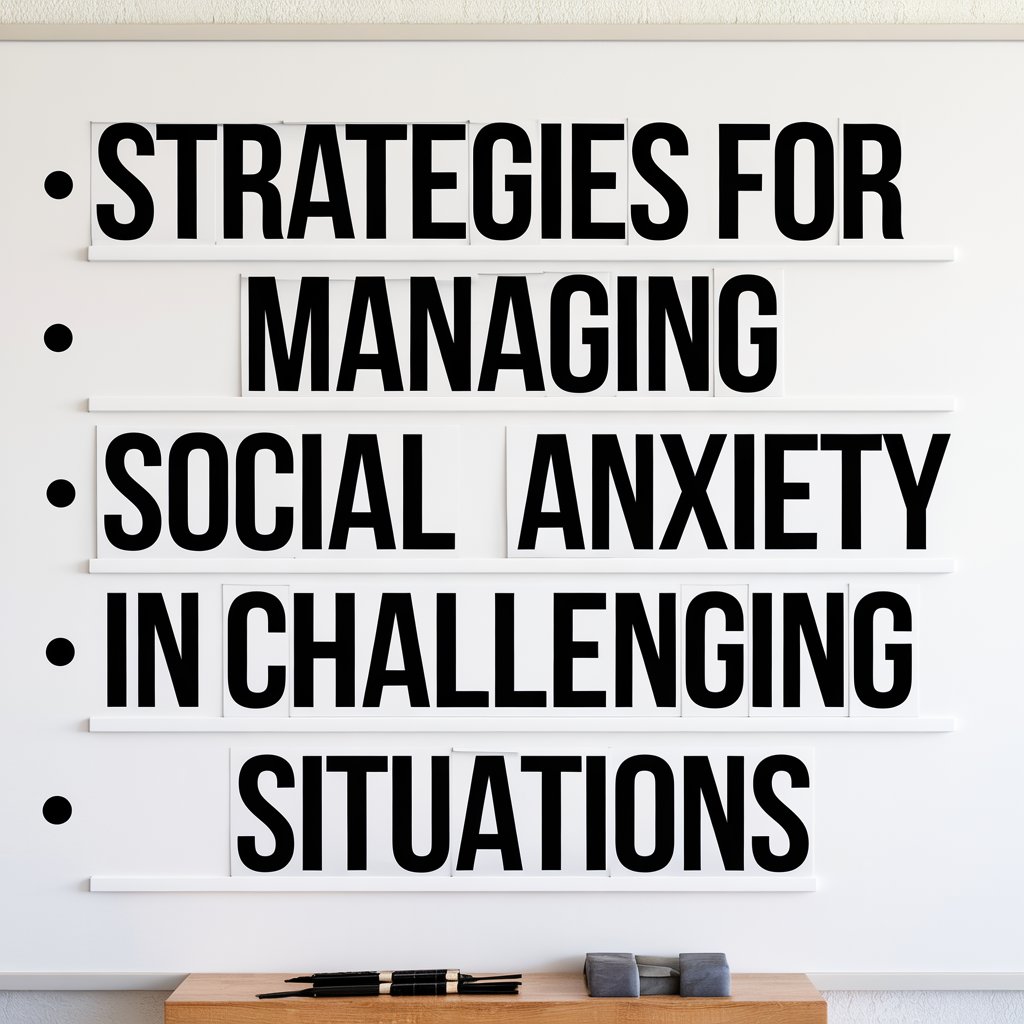Social anxiety can make day-to-day interactions daunting, whether it’s going to a social event, speaking in front of a group, or meeting new people. While it can feel overwhelming, there are effective ways to manage social anxiety. Here are some helpful strategies to guide you through anxiety-inducing situations and gradually build your confidence.
Plan Ahead and Prepare
A great way to handle social anxiety is through thoughtful preparation. Before you face a potentially stressful situation, take time to plan. If you’re going to an event, gather information about the location, the people attending, and the schedule. Knowing what to expect can help you feel more in control and reduce anxiety. Consider practicing breathing techniques, preparing a few conversation starters, or thinking of topics that you feel comfortable discussing. Preparing in advance can help you feel more relaxed and focus on the positive aspects of the experience.
Find Support Through Groups
Support groups can be incredibly helpful for individuals struggling with social anxiety. These groups offer a safe environment to connect with others who share similar experiences. Talking openly about your anxiety can help you learn new coping techniques and gain valuable insights from others who understand what you are going through. Support groups also foster a sense of belonging, which can reduce feelings of loneliness. If attending in person feels too challenging, you can explore online support groups as a starting point.
Incorporating social anxiety therapy, such as cognitive-behavioral therapy, can be a highly effective way to address and manage your anxiety, providing tailored strategies to help you feel more comfortable in social situations.
Use Gradual Exposure Techniques
Exposure therapy is a technique that involves gradually facing situations that trigger anxiety, helping you become less sensitive to them over time. Start with small, manageable interactions, like greeting a neighbor or chatting with a cashier. As you grow more comfortable, move on to more challenging situations, such as attending a party or giving a speech. Regular exposure to anxiety-provoking scenarios can help diminish the fear associated with them, leading to increased confidence and comfort.
Practice Positive Self-Talk
Negative self-talk can significantly amplify social anxiety. Challenge these negative thoughts by replacing them with positive affirmations. Instead of thinking, “I’m going to embarrass myself,” try something more encouraging like, “I am doing my best, and that’s enough.” Practice being kind to yourself and recognize that feeling anxious is okay; it does not define you. Shifting to positive self-talk can help you develop a more empowering mindset and feel more self-assured in social settings.
Incorporate Mindfulness and Relaxation Exercises
Mindfulness practices, including meditation, deep breathing, and muscle relaxation, are effective tools for managing social anxiety. These techniques can help calm your body’s physical response to anxiety, allowing you to stay present and grounded in the moment. When faced with a challenging social situation, take a moment to focus on your breathing, observe your surroundings, and bring your attention back to the present. Consistent practice of these techniques can enhance your ability to manage anxiety overall.
Consider Professional Support
If social anxiety is significantly impacting your daily life, seeking professional support may be a helpful step. Cognitive-behavioral therapy (CBT) is a proven approach for treating social anxiety, assisting individuals in identifying and altering negative thought patterns. A mental health professional can offer personalized strategies for coping with anxiety, helping you gradually feel more at ease in social environments.
Conclusion
Social anxiety can seem like a major hurdle, but with the right approaches, you can handle these situations more effectively. Whether it’s through careful preparation, joining support groups, practicing mindfulness, or seeking professional guidance, there are numerous strategies to manage social anxiety. Keep in mind that progress is gradual, and each small step you take helps build your confidence and comfort in social interactions.





